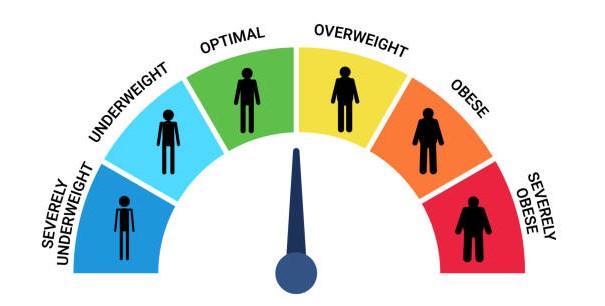BMI Calculator
What is BMI Calculator?
BMI stands for Body Mass Index. It is a measurement used to assess a person’s body weight relative to their height, indicating whether they are underweight, normal weight, overweight, or obese.
This calculator will ask you about height and weight.
After calculating the given data, this calculator will show you your BMI value with different classifications according to the BMI.
You may also like to use Body Fat Calculator.
Benefits of Using BMI Calculator
BMI calculator is a great tool that can help you make a better decision. This calculator shows you your BMI value with different classifications according to the BMI.
This BMI Calculator is a body mass index (BMI) calculator. It allows users to enter their height and weight information to see their body mass index score. This indicates whether their weight falls into a healthy range or not.
The best thing about this calculator is that they don’t require any special knowledge or skills to use. All you need to do is input the values and then click on calculate.
Frequently Asked Questions Related to BMI Calculator
Here are some of the most asked questions related to BMI Calculator…
How is BMI Calculated?
BMI is calculated using only the variables of weight and height. Your BMI is equal to your weight in kilograms divided by your height in metres squared. You can also calculate your BMI using imperial units, in which case your BMI is equal to your weight in pounds divided by your height in inches squared, multiplied by 703.
Does BMI measure body fat?
BMI does not directly measure body fat. BMI is a proxy measure of body fat based on the variables of weight and height, and as such it provides an estimation only. Because BMI does not provide a direct measure of body fat, its use is confined to certain people
Is BMI officially recognised?
Yes, BMI is officially recognised by the World Health Organisation, and it is endorsed by a wide range of government agencies and medical organisations throughout the world. This official recognition has led to BMI being used extensively in both the public and private sectors in all developed countries.
What does a high BMI indicate?
A high BMI usually suggests that a person may be overweight or obese, which can be associated with health risks such as heart disease and diabetes.
What does a low BMI indicate?
A low BMI may indicate that a person is underweight, which can also have health implications such as nutrient deficiencies and weakened immunity.
Is BMI an accurate measure of body fat?
BMI provides a rough estimate of body fat, but it does not differentiate between fat mass and muscle mass, so it may not be accurate for athletes or individuals with higher muscle mass.
What are the BMI categories?
The World Health Organization (WHO) defines BMI categories as: Underweight (BMI < 18.5), Normal weight (BMI 18.5 – 24.9), Overweight (BMI 25 – 29.9), and Obesity (BMI ≥ 30).

Does BMI consider gender or body shape?
BMI does not take gender or body shape into account. It is a standardized measurement solely based on weight and height.
Is BMI used for diagnosing health conditions?
BMI is not a diagnostic tool but serves as a screening tool to identify potential weight-related health risks.
Can BMI fluctuate over time?
Yes, BMI can change based on weight fluctuations. Regularly monitoring BMI can help individuals track their weight and health progress.
Is there a BMI range that is considered ideal?
While the “normal weight” range (BMI 18.5 – 24.9) is often seen as ideal, individual health goals and body compositions may vary.
Can I calculate BMI using pounds and feet?
Yes, BMI can also be calculated using weight in pounds and height in feet. There are conversion factors to obtain the metric units for the formula.
Where can I get support or advice on interpreting BMI results?
If you have questions or need guidance in understanding your BMI results, consulting with a healthcare professional or a registered dietitian is recommended.